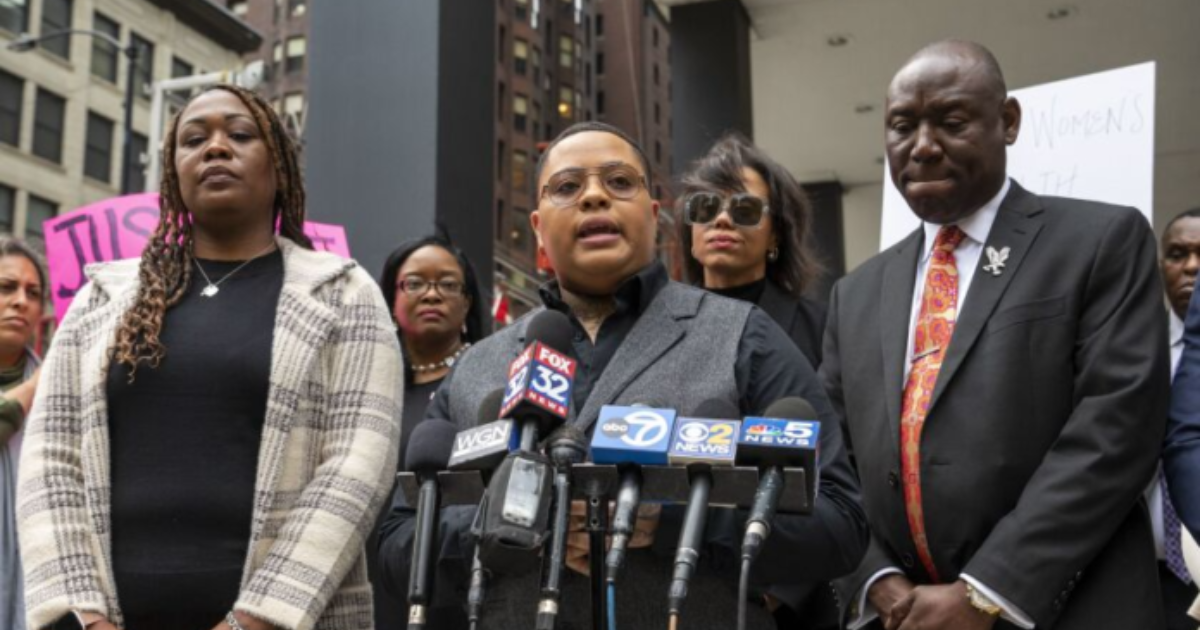An attorney representing plaintiffs in a large lawsuit against manufacturers of hair relaxers said she already has 200 claims from women who allege the products damaged their health.
In an interview with the Crusader, Attorney April Preyar, a Chicago native, says her firm Wallace and Miller are reviewing the claims as part of a mass tort lawsuit against companies that make and sell hair relaxers. Companies like L’Oreal, Soft Sheen, Strength of Nature Global, and Namaste Laboratories, LLC, in Chicago are being sued after the National Institutes of Health last October released a major study that found consumers who used commercially available retail hair relaxers and straightening products may have an increased risk of developing uterine or endometrial cancer and other health risks.
Days after the study was released, a lawsuit by Jenny Mitchell, a Black woman from Missouri, was filed in Chicago in the U.S. District Court of Northern Illinois. It was one of many lawsuits across the country that have been filed against hair relaxer manufacturers, but a special judicial panel in January decided that all complaints will be consolidated in a class action suit that will be litigated in Chicago under Judge Mary Rowland, an openly gay individual who was appointed by President Donald Trump.
Preyar is a criminal defense attorney and legal analyst who has been featured on national and local news, including CBS2, ABC7 Chicago, NBC 5 Chicago. An experienced criminal defense attorney, legal educator, professional speaker, board game designer, and author of six books. Preyar is a graduate of Duke University and George Washington University Law School. She has been practicing law in Illinois for 22 years.
Wallace and Miller recently retained her to help their legal team handle legal claims that will be part of a mass tort lawsuit.
Unlike a class action lawsuit, mass tort cases involve a large group of personal injury cases where numerous plaintiffs who have been damaged by a defective product have a common claim against the same defendant. Each plaintiff’s injury can differ but must be caused by similar circumstances. Plaintiffs must prove that the product contains a defect and contributed to an injury.
Plaintiffs in a mass tort lawsuit can also make a failure to warn argument that alleges the manufacturer didn’t include instructions on how to use the product correctly or warning labels to notify consumers of the risks. The court in a mass tort lawsuit determines the amount of money each plaintiff is entitled to, based on the unique circumstances of their case.
As one of several attorneys at Wallace and Miller, Preyar is collecting personal injury claims from women who used hair relaxers, chemicals or creams that removed straightened hair to give it a sleek look that appeals to one’s work environment and corporate America.
Preyar told the Crusader she has received about 200 claims but no lawsuits have been filed. She said her office is currently reviewing those claims as part of the process of preparing a mass tort lawsuit.
Preyar told the Crusader most of the 200 claims her firm has received are from women in Illinois and Oklahoma City.
Preyar is seeking middle-age to 60-year-old women who used hair relaxers throughout their lives.
Since the study on hair relaxers was released, Preyar has been very busy. She was featured on a special 90-minute show with WVON radio host Perri Small.
On WGCI, Preyar said she received 40 calls in 40 minutes from concerned Black women who used hair relaxers over the years.
“Every 3 or 4 women I talked to were infertile.” Some had a number of ovarian cysts and were not sure what caused them.
“A lot of them are burying their trauma. They talk about their problems like they talk about grocery shopping.
“There’s a lot of layers, but it’s unfortunate that Black women have been targeted.”
Last October, the Institute released a Sister Study that examined nearly 34,000 women 35 to 74 years old who used hair relaxers for 11 years. About 7.4 percent, or 2,512, of the participants were Black women and 4.4 percent, or 1,494, were Latino. Nearly 86 percent of the participants were white.
The study confirmed 262 cases of uterine cancer among the participants, of which nearly 56 percent had a college degree or above. While the study did not identify by race the number of women who developed uterine cancer, researchers said that four applications for the Black women who had used hair relaxers for even one year were twice as likely as all other women to develop endometrial cancer. Older studies had shown that Black women who had previously used hair relaxers were also more likely to develop fibroids and ovarian cancer.
In her lawsuit filed in Chicago, Mitchell alleged she was diagnosed with uterine cancer five years ago after she was exposed to chemicals in hair care products from L’Oreal, Soft Sheen, Strength of Nature Global, and Namaste Laboratories, LLC, in Chicago.
Most of these companies make products that were founded by Black-owned companies in Chicago. But in recent decades, most Black-owned companies were bought out by large corporations that boosted the distribution and availability of these products on store shelves.






